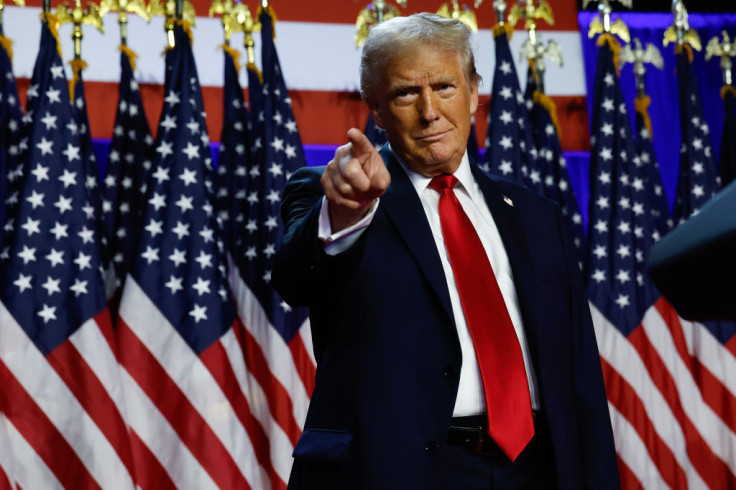
President-elect Donald Trump plans to impose a series of tariffs as he prepares to take office but Seth Carpenter, Chief Economist at Morgan Stanley, has expressed concerns that the proposed tariffs could hinder U.S. economic growth through 2026.
Trump proposed in his September presidential debate to impose extra duties ranging from 60% to 100% explicitly targeting goods imported from China, with a blanket 10% to 20% tariff on all imports, a strategy he claims will help extract funds from competing nations.
However, Carpenter said that if the president-elect imposes all the planned tariffs at once, it could backfire and result in a "big negative shock" to the economy, CNBC reported.
"Then into 2026, we think growth starts to come down a great deal in the U.S. because of those tariffs and some of the other policies," he cautioned.
"Very clear, tariffs push up inflation. Very clear, tariffs are a drag on growth for the U.S., not just for the countries that the tariffs are put on," Carpenter added.
The tariffs, particularly alongside those already enacted by the Biden administration, could lead to rising costs across various sectors, including automobiles, consumer electronics, machinery, construction and retail, according to Mark Malek, Chief Investment Officer at brokerage firm Siebert.
Malek said that Trump's proposed 60% tariff on Chinese goods, combined with Biden's existing 100% tariff on Chinese electric vehicles, would "significantly impact" the auto industry.
A universal 10% tariff on imported consumer electronics would also likely raise costs for companies such as Tesla, Microsoft and Apple. , Malek warns the increased expenses would likely be passed on to consumers.
Trump has described the policy outlook as a "manufacturing renaissance," which was hailed by companies that are fighting to maintain a market stronghold amid an influx of low-cost products from countries like China.
"We'll lead an American manufacturing boom," he had said in the September address in Georgia. "When they have to pay tariffs to come in, but they have incentive to build here, they're going to come roaring back."
Gary Schlossberg, global strategist at the Wells Fargo Investment Institute, argues that this offers some measure of protection, but "depending on where you are in manufacturing, that (inflation) could work against you."
Despite the U.S. consumer price index rising by 2.6% in October compared to the previous year, a slight increase from September's 2.4%, inflation in the U.S. has decreased after several years, leading the U.S. Federal Reserve to lower interest rates.
If sweeping tariffs were implemented, markets might entirely rule out interest rate cuts for 2025, according to Ben Emons, chief investment officer and founder of FedWatch Advisors. He also noted that such tariffs could potentially "restrain" economic growth.
The tariffs could also harm the already delicate Beijing-Washington relationship and significantly impact China's substantial trade surplus with the United States.
Experts warn that the tariff surge may also lead to China retaliating with similar actions, halting the U.S.' economic expansion.







